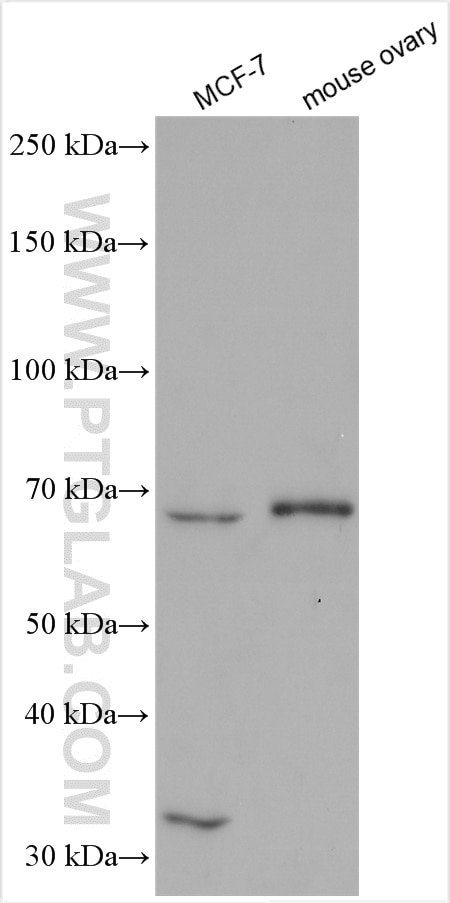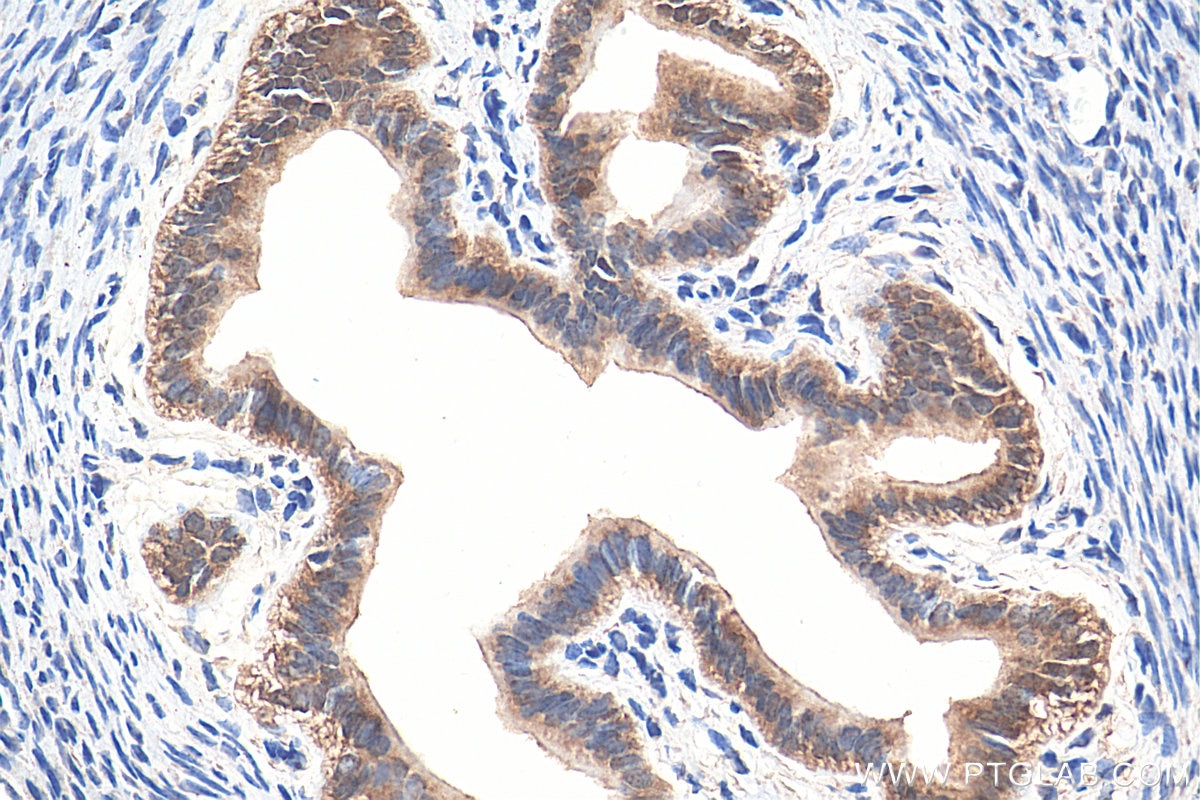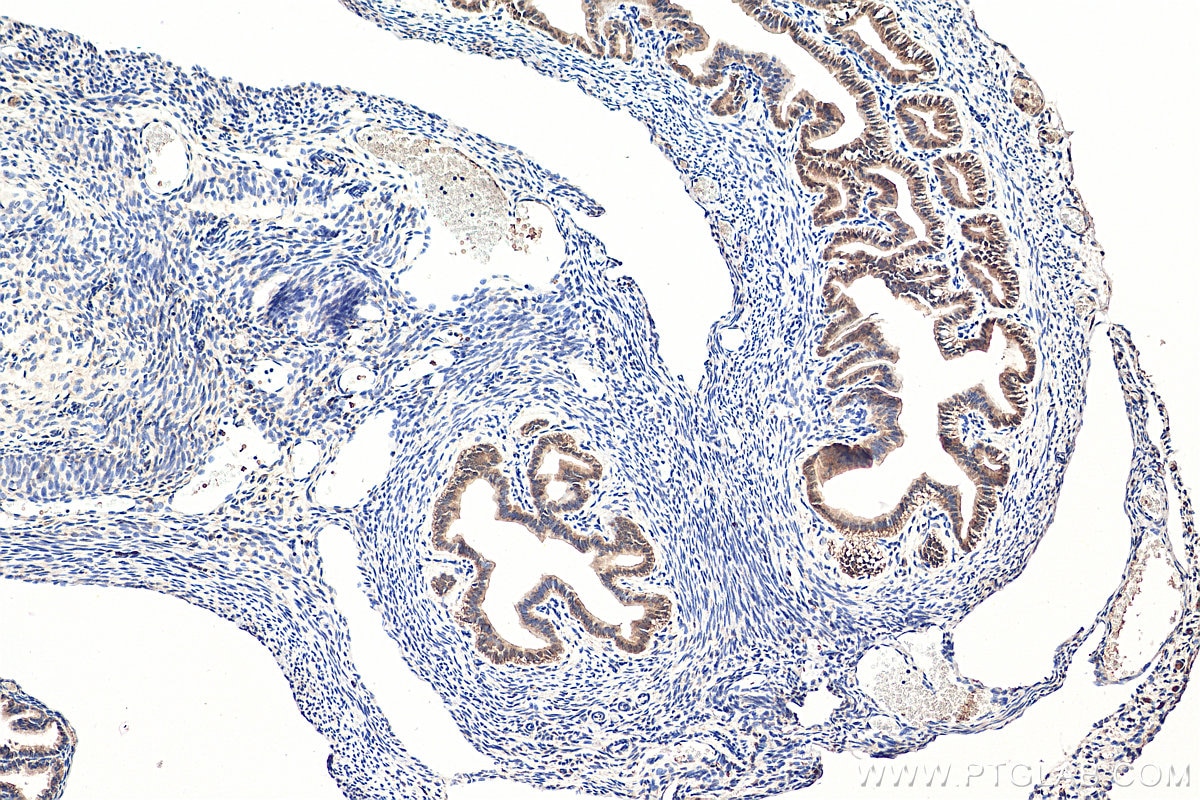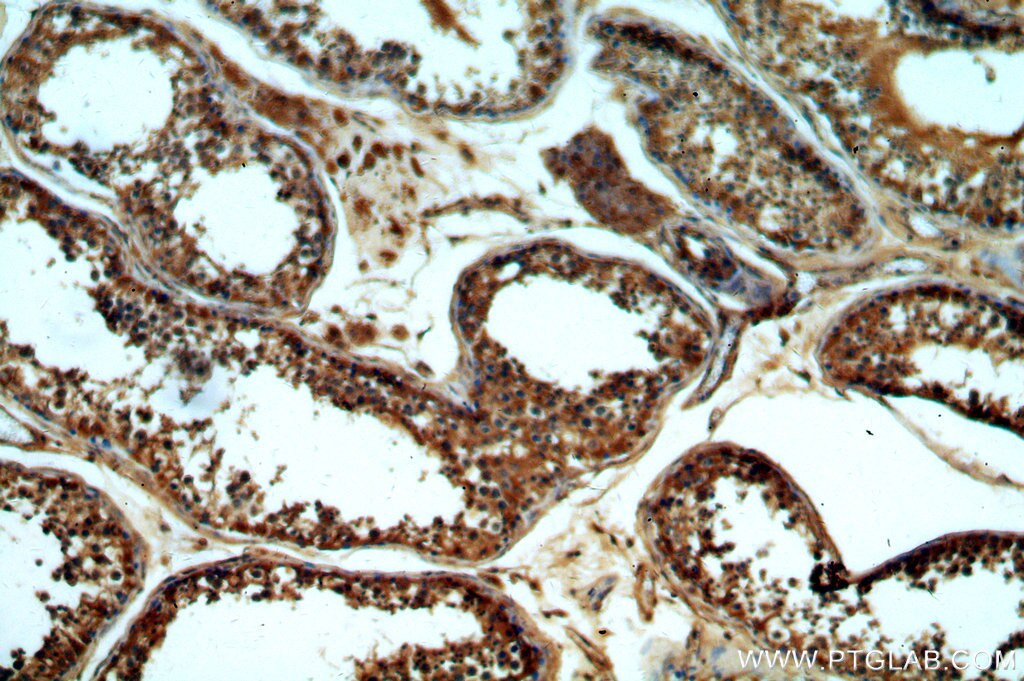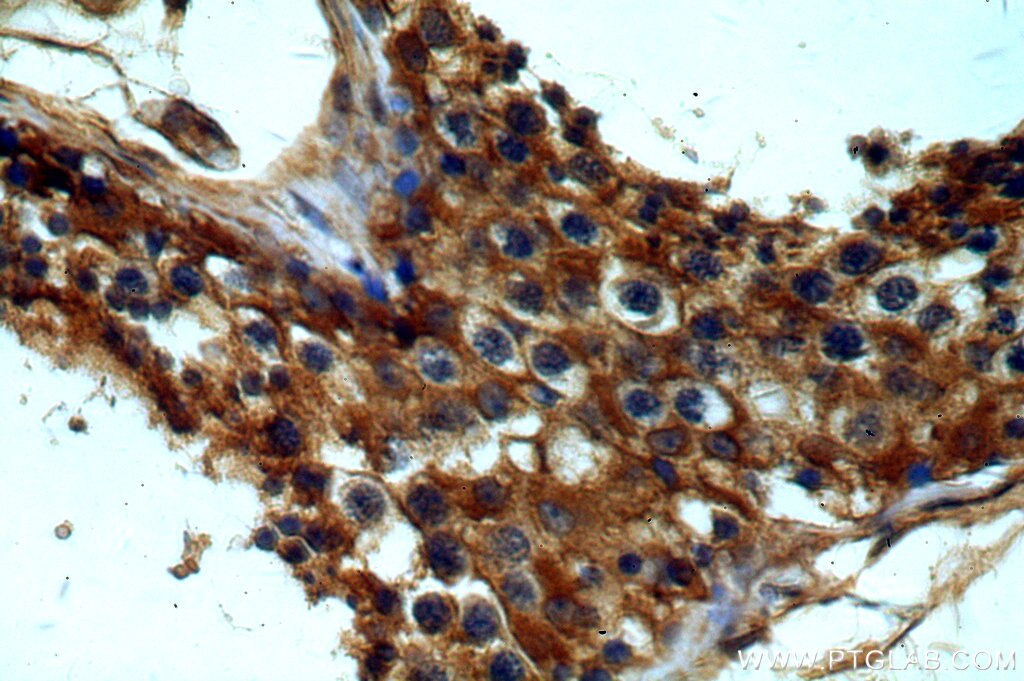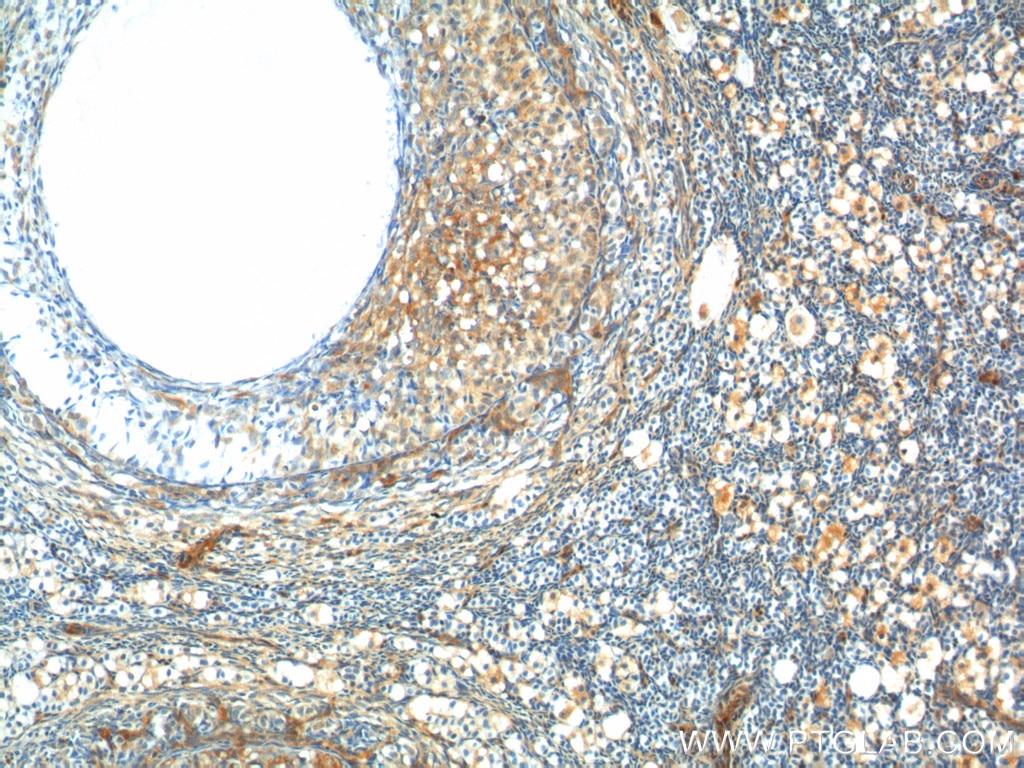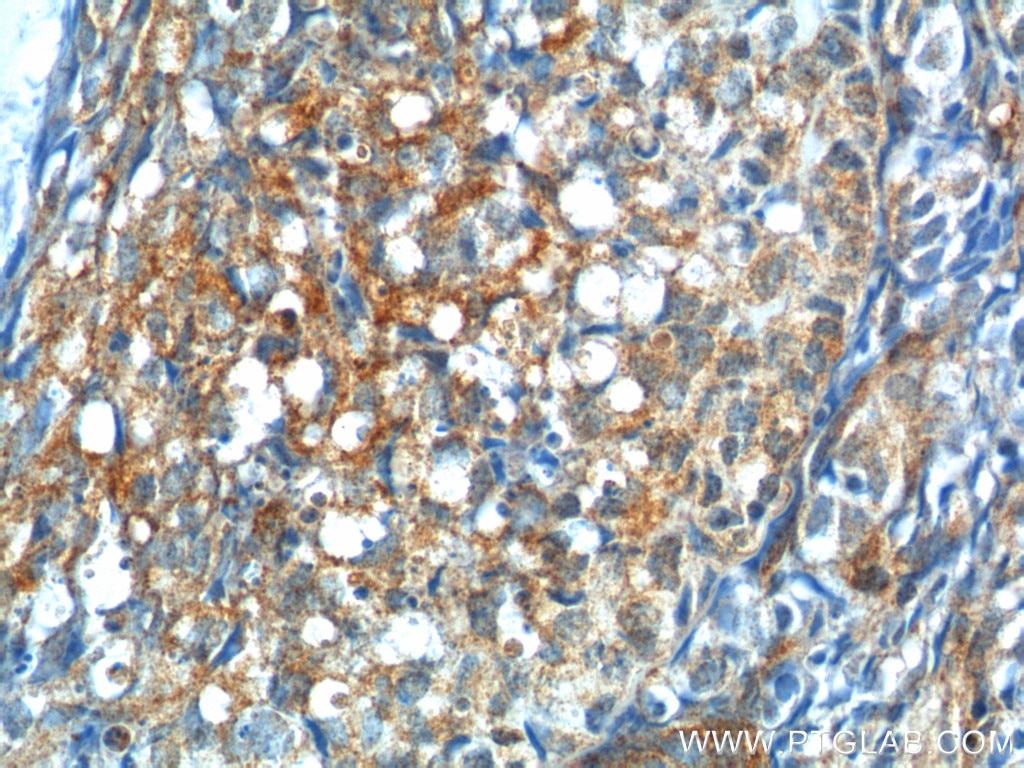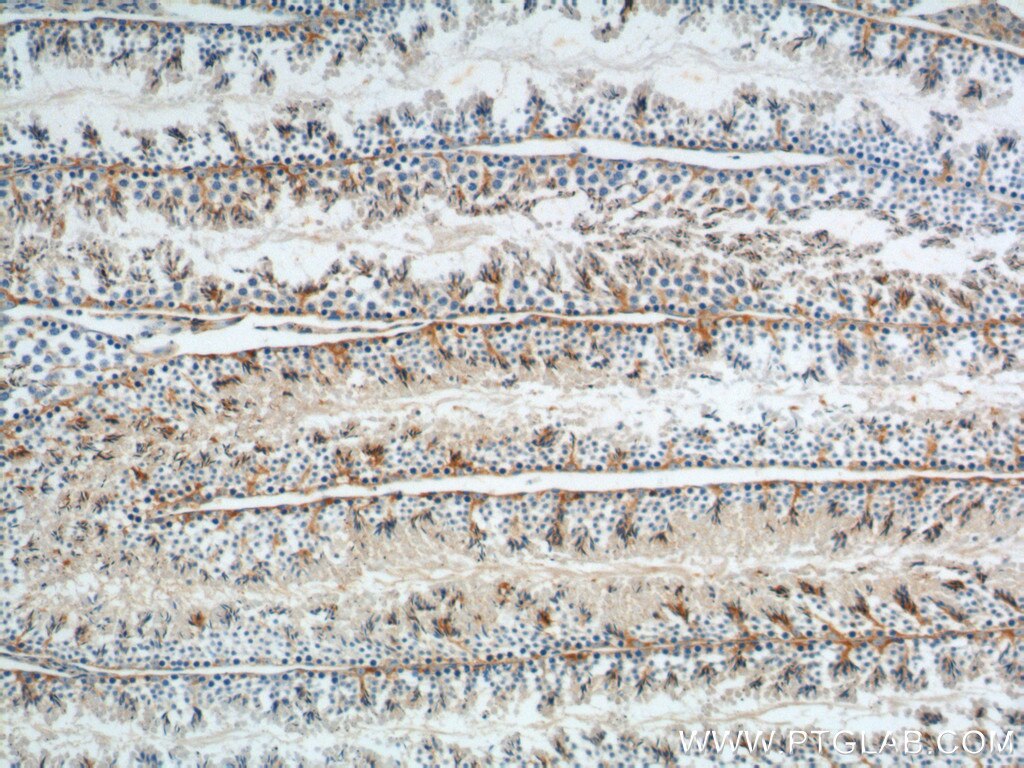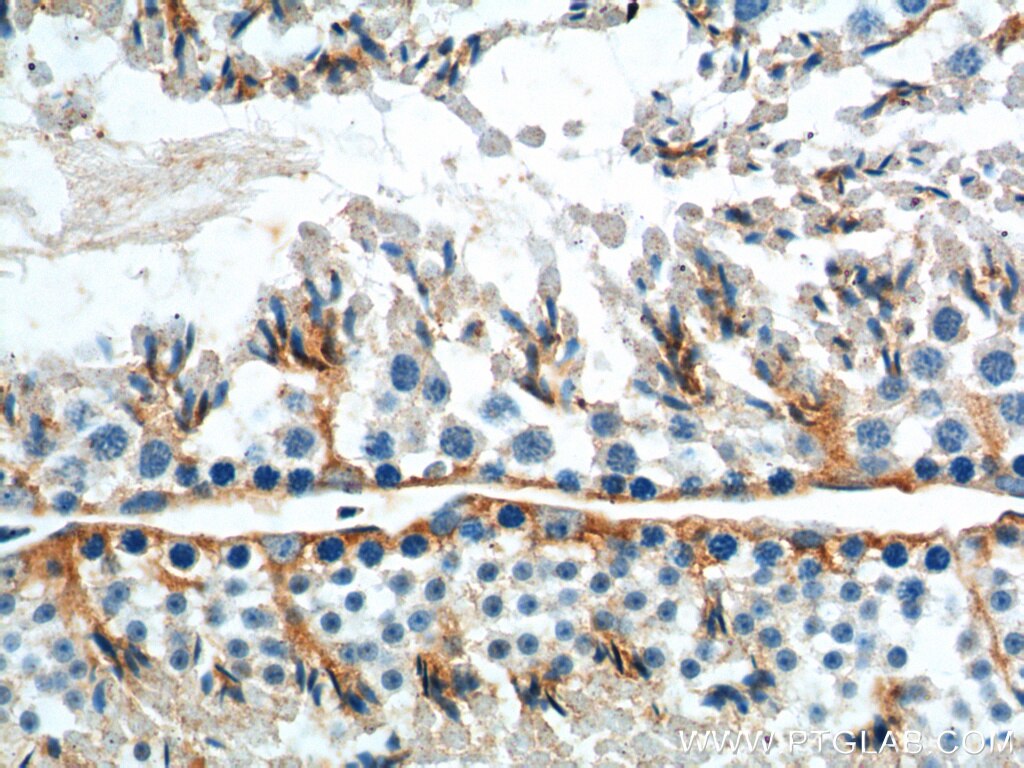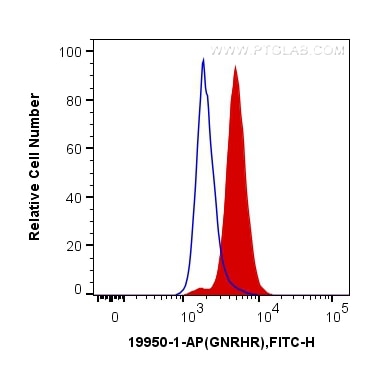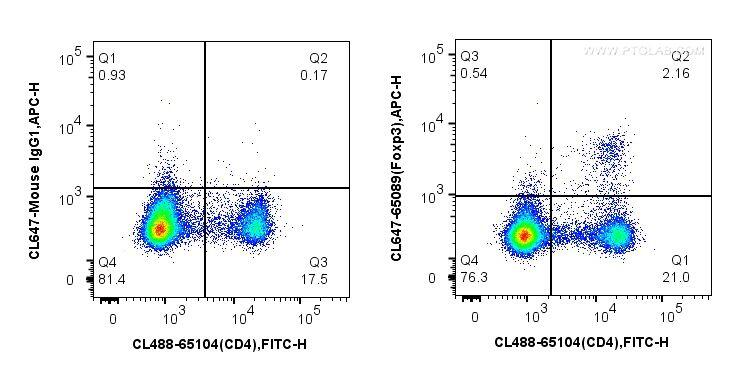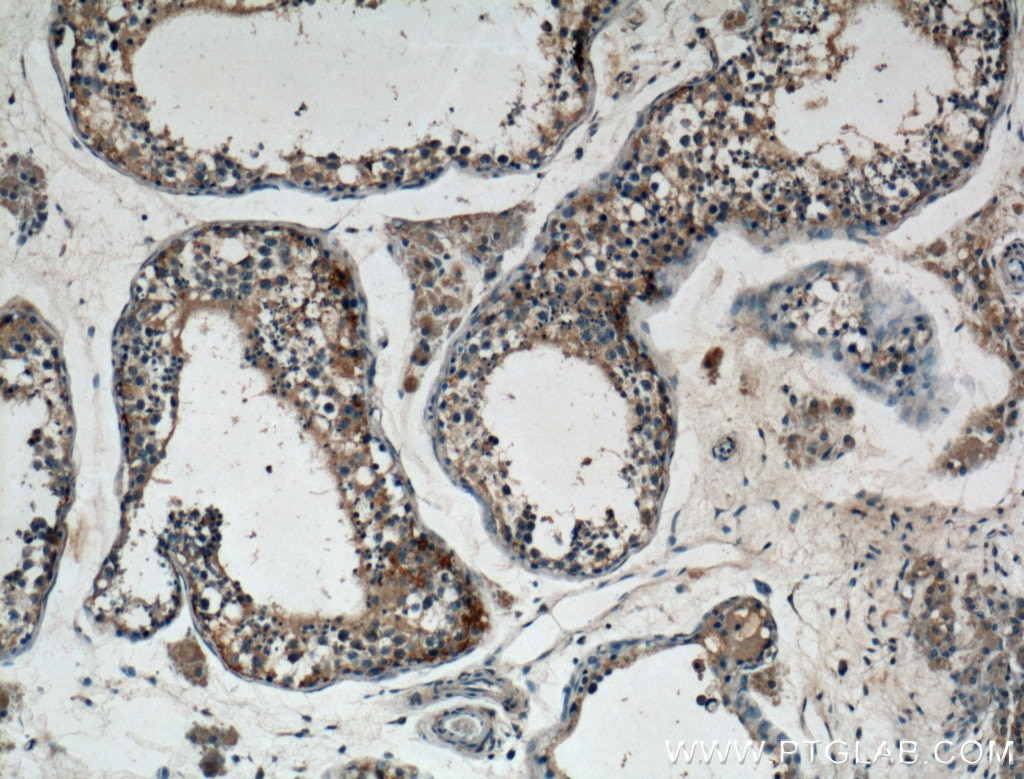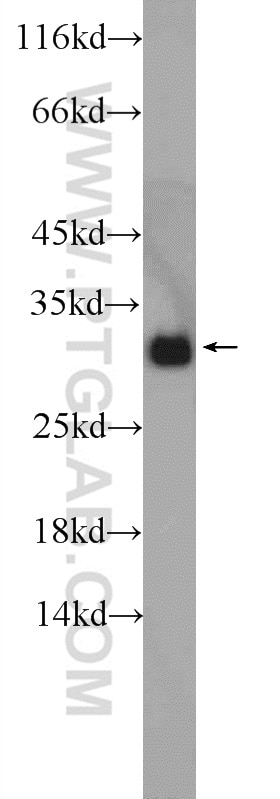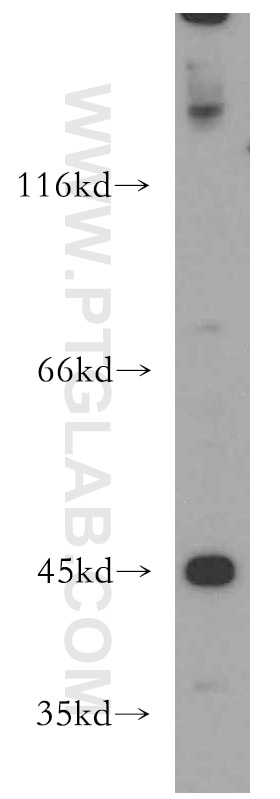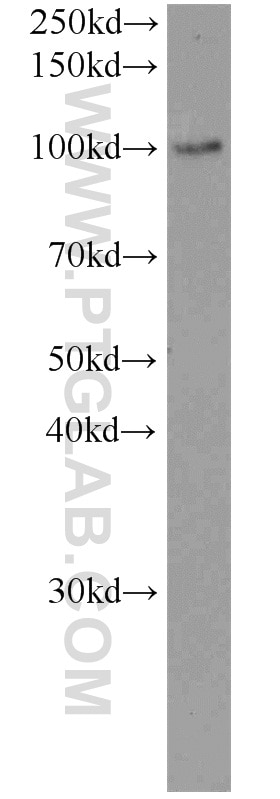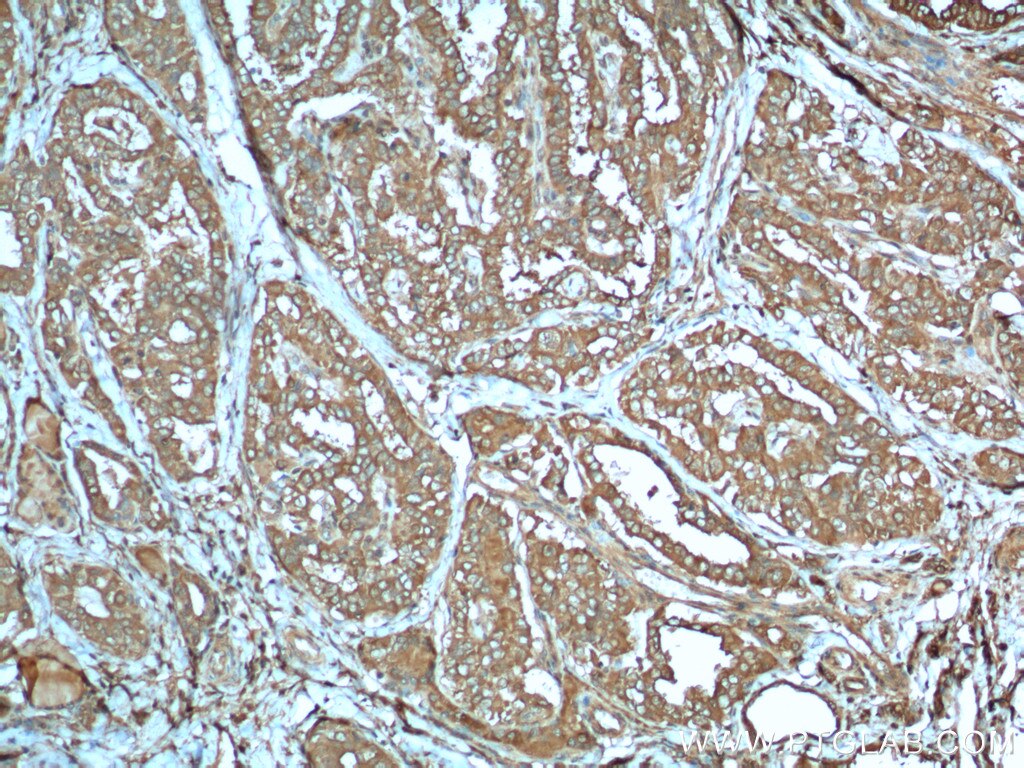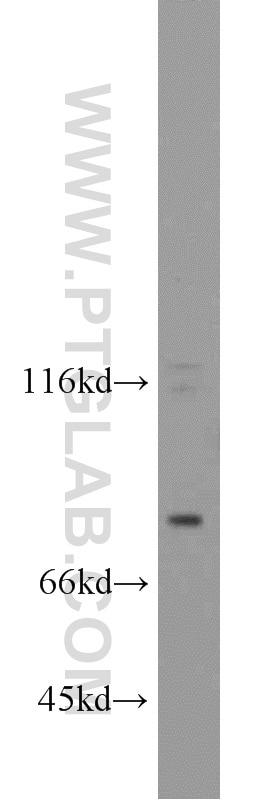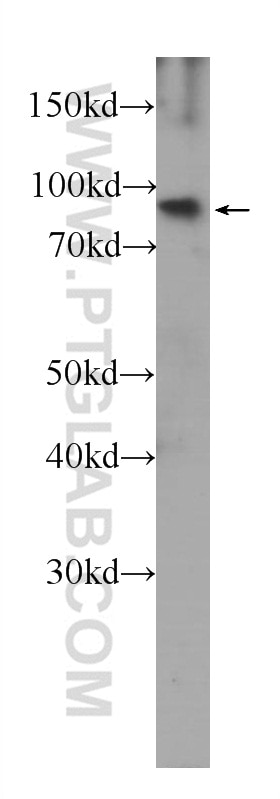GNRHR Polyklonaler Antikörper
GNRHR Polyklonal Antikörper für FC, IHC, WB, ELISA
Wirt / Isotyp
Kaninchen / IgG
Getestete Reaktivität
human, Maus und mehr (2)
Anwendung
WB, IHC, IF, FC, ELISA
Konjugation
Unkonjugiert
Kat-Nr. : 19950-1-AP
Synonyme
Galerie der Validierungsdaten
Geprüfte Anwendungen
| Erfolgreiche Detektion in WB | MCF-7-Zellen, Maus-Eierstockgewebe |
| Erfolgreiche Detektion in IHC | Maus-Eierstockgewebe, humanes Eierstockgewebe, humanes Hodengewebe, Maushodengewebe Hinweis: Antigendemaskierung mit TE-Puffer pH 9,0 empfohlen. (*) Wahlweise kann die Antigendemaskierung auch mit Citratpuffer pH 6,0 erfolgen. |
| Erfolgreiche Detektion in FC | MCF-7-Zellen |
Empfohlene Verdünnung
| Anwendung | Verdünnung |
|---|---|
| Western Blot (WB) | WB : 1:1000-1:6000 |
| Immunhistochemie (IHC) | IHC : 1:500-1:2000 |
| Durchflusszytometrie (FC) | FC : 0.20 ug per 10^6 cells in a 100 µl suspension |
| It is recommended that this reagent should be titrated in each testing system to obtain optimal results. | |
| Sample-dependent, check data in validation data gallery | |
Veröffentlichte Anwendungen
| WB | See 14 publications below |
| IHC | See 9 publications below |
| IF | See 6 publications below |
| FC | See 2 publications below |
Produktinformation
19950-1-AP bindet in WB, IHC, IF, FC, ELISA GNRHR und zeigt Reaktivität mit human, Maus
| Getestete Reaktivität | human, Maus |
| In Publikationen genannte Reaktivität | human, Hausschwein, Maus, Ratte |
| Wirt / Isotyp | Kaninchen / IgG |
| Klonalität | Polyklonal |
| Typ | Antikörper |
| Immunogen | Peptid |
| Vollständiger Name | GnRH receptor |
| Berechnetes Molekulargewicht | 38 kDa |
| Beobachtetes Molekulargewicht | 60-70 kDa |
| GenBank-Zugangsnummer | NM_000406 |
| Gene symbol | GNRHR |
| Gene ID (NCBI) | 2798 |
| Konjugation | Unkonjugiert |
| Form | Liquid |
| Reinigungsmethode | Antigen-Affinitätsreinigung |
| Lagerungspuffer | PBS mit 0.02% Natriumazid und 50% Glycerin pH 7.3. |
| Lagerungsbedingungen | Bei -20°C lagern. Nach dem Versand ein Jahr lang stabil Aliquotieren ist bei -20oC Lagerung nicht notwendig. 20ul Größen enthalten 0,1% BSA. |
Hintergrundinformationen
GNRHR, also named GRHR, belongs to the G-protein coupled receptor 1 family. GNRHR is a receptor for GnRH that mediates the action of GnRH to stimulate the secretion of the gonadotropic hormones luteinizing hormone (LH) and follicle-stimulating hormone (FSH). It mediates its action by association with G-proteins that activate a phosphatidylinositol-calcium second messenger system. Isoform2 of GNRHR may act as an inhibitor of GnRH-R signaling. Defects in GNRHR are a cause of idiopathic hypogonadotropic hypogonadism (IHH). Defects in GNRHR are a cause of fertile eunuch syndrome. The antibody only recognizes the isoform1 of GNRHR. The predicted unmodified molecular weight of the human GNRHR is ~38 kDa, the larger band (50-65 kDa) is likely to represent a glycosylated form of GNRHR.
Protokolle
| Produktspezifische Protokolle | |
|---|---|
| WB protocol for GNRHR antibody 19950-1-AP | Protokoll herunterladen |
| IHC protocol for GNRHR antibody 19950-1-AP | Protokoll herunterladen |
| FC protocol for GNRHR antibody 19950-1-AP | Protokoll herunterladen |
| Standard-Protokolle | |
|---|---|
| Klicken Sie hier, um unsere Standardprotokolle anzuzeigen |
Publikationen
| Species | Application | Title |
|---|---|---|
Cancer Res Peptide-Drug Conjugate GnRH-Sunitinib Targets Angiogenesis Selectively at the Site of Action to Inhibit Tumor Growth. | ||
Int J Nanomedicine Pseudoephedrine Nanoparticles Alleviate Adriamycin-Induced Reproductive Toxicity Through the GnRhR Signaling Pathway. | ||
Int J Mol Sci Development and Biochemical Characterization of Self-Immolative Linker Containing GnRH-III-Drug Conjugates. | ||
Bioconjug Chem GnRH-Gemcitabine Conjugates for the Treatment of Androgen-Independent Prostate Cancer: Pharmacokinetic Enhancements Combined with Targeted Drug Delivery. | ||
Front Endocrinol (Lausanne) The Anti-proliferative Activity of GnRH Through Downregulation of the Akt/ERK Pathways in Pancreatic Cancer. | ||
Rezensionen
The reviews below have been submitted by verified Proteintech customers who received an incentive forproviding their feedback.
FH Dequina (Verified Customer) (12-11-2018) | This antibody has worked very well for flow cytometry in primary pituitary cells. The positive staining is clear although not bright enough for clean separation of populations even with a very bright secondary (BV421).
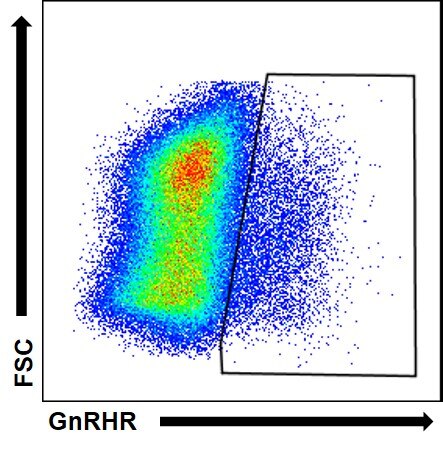 |
